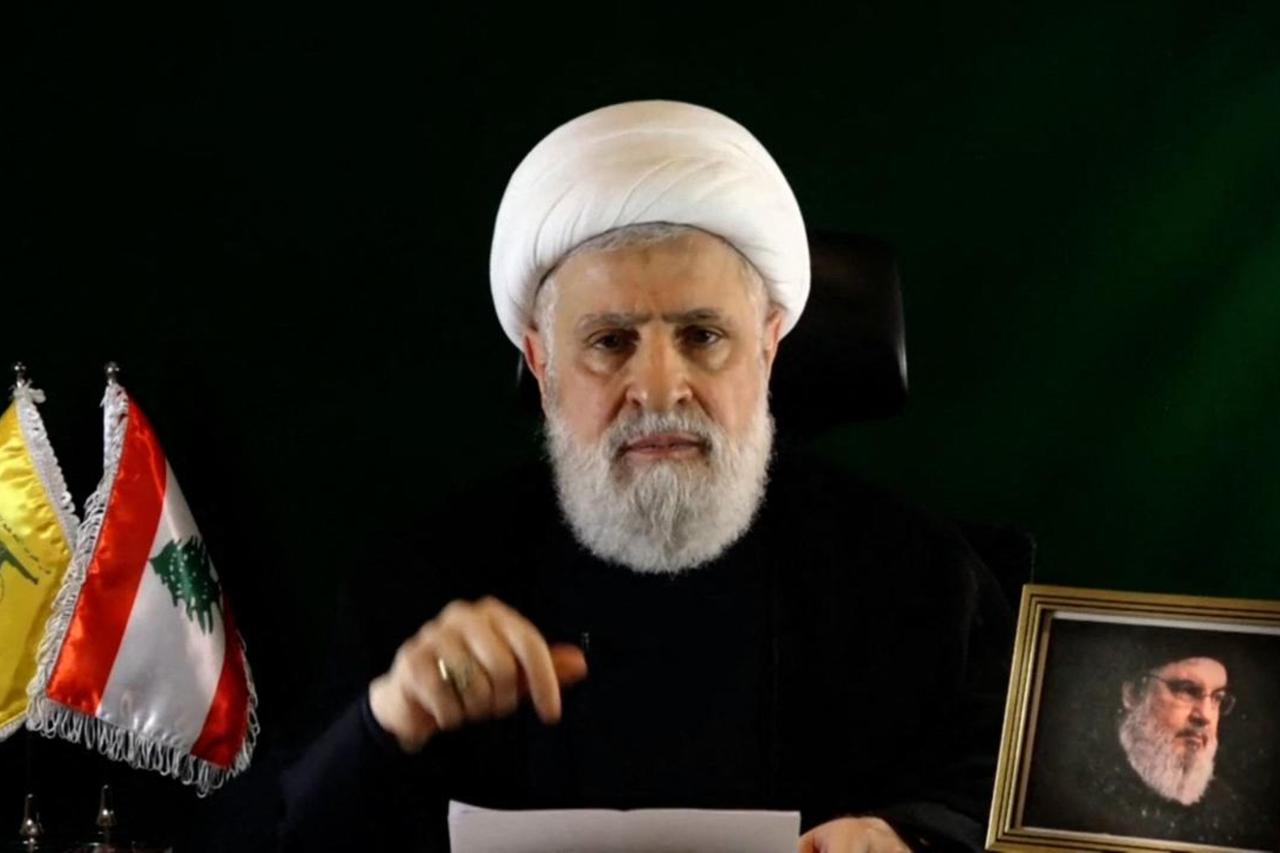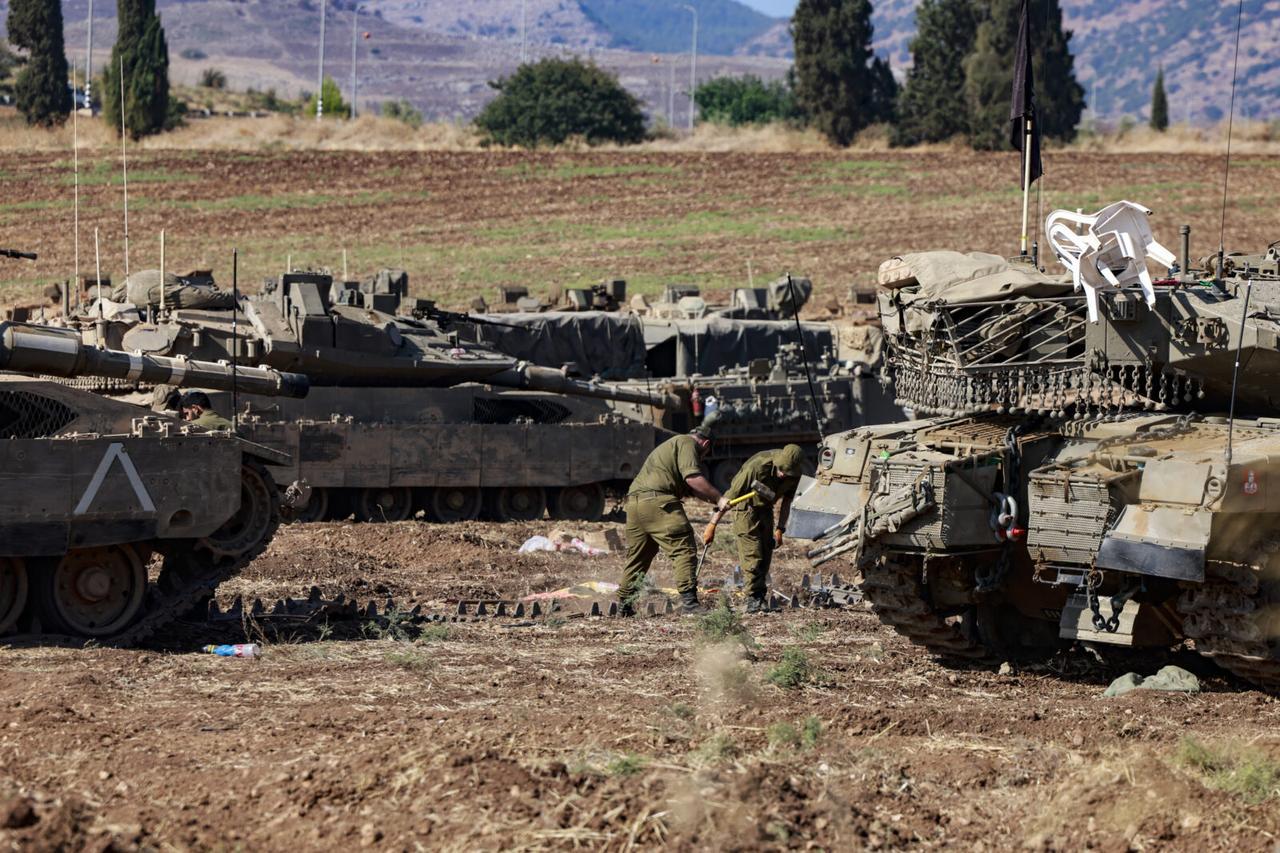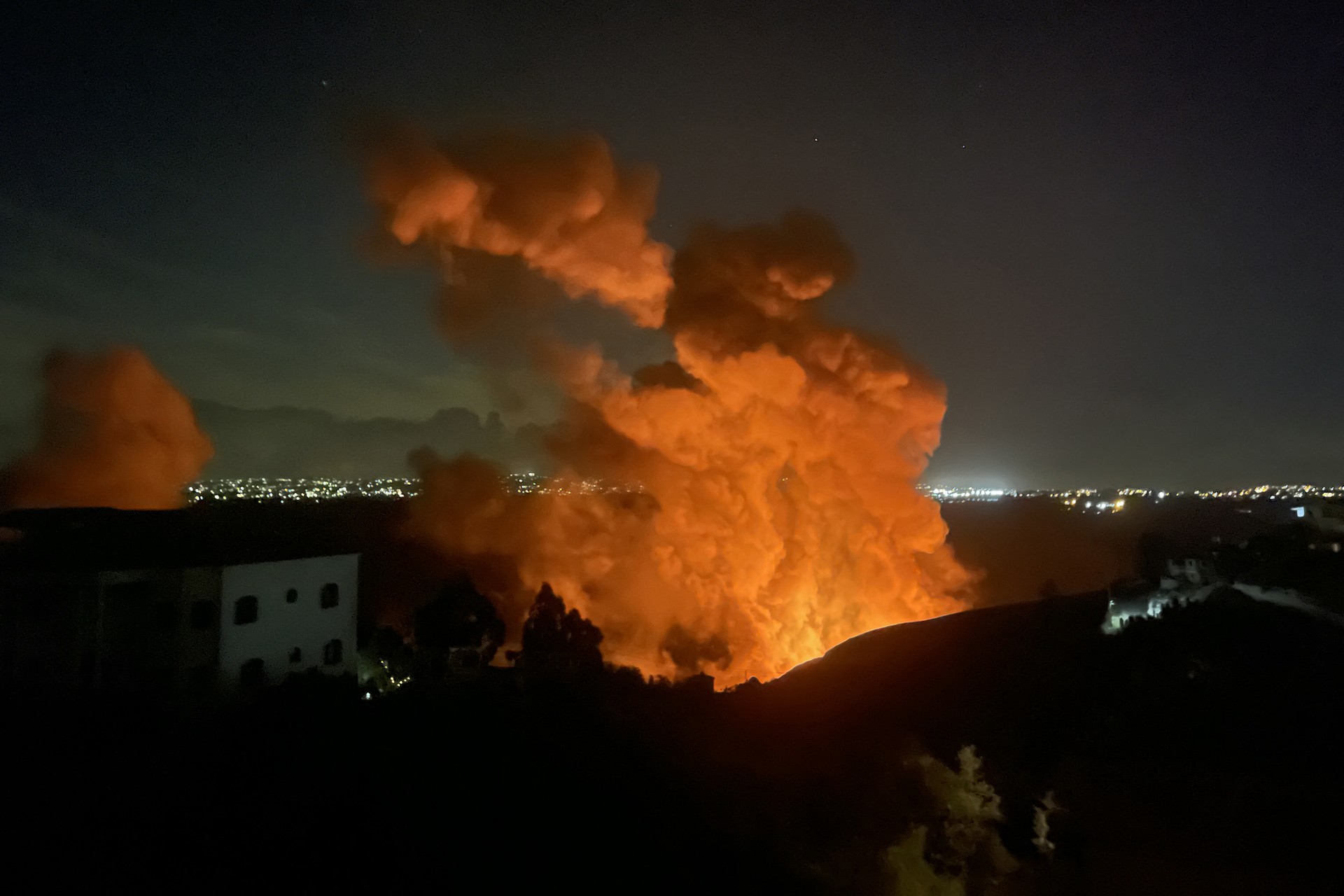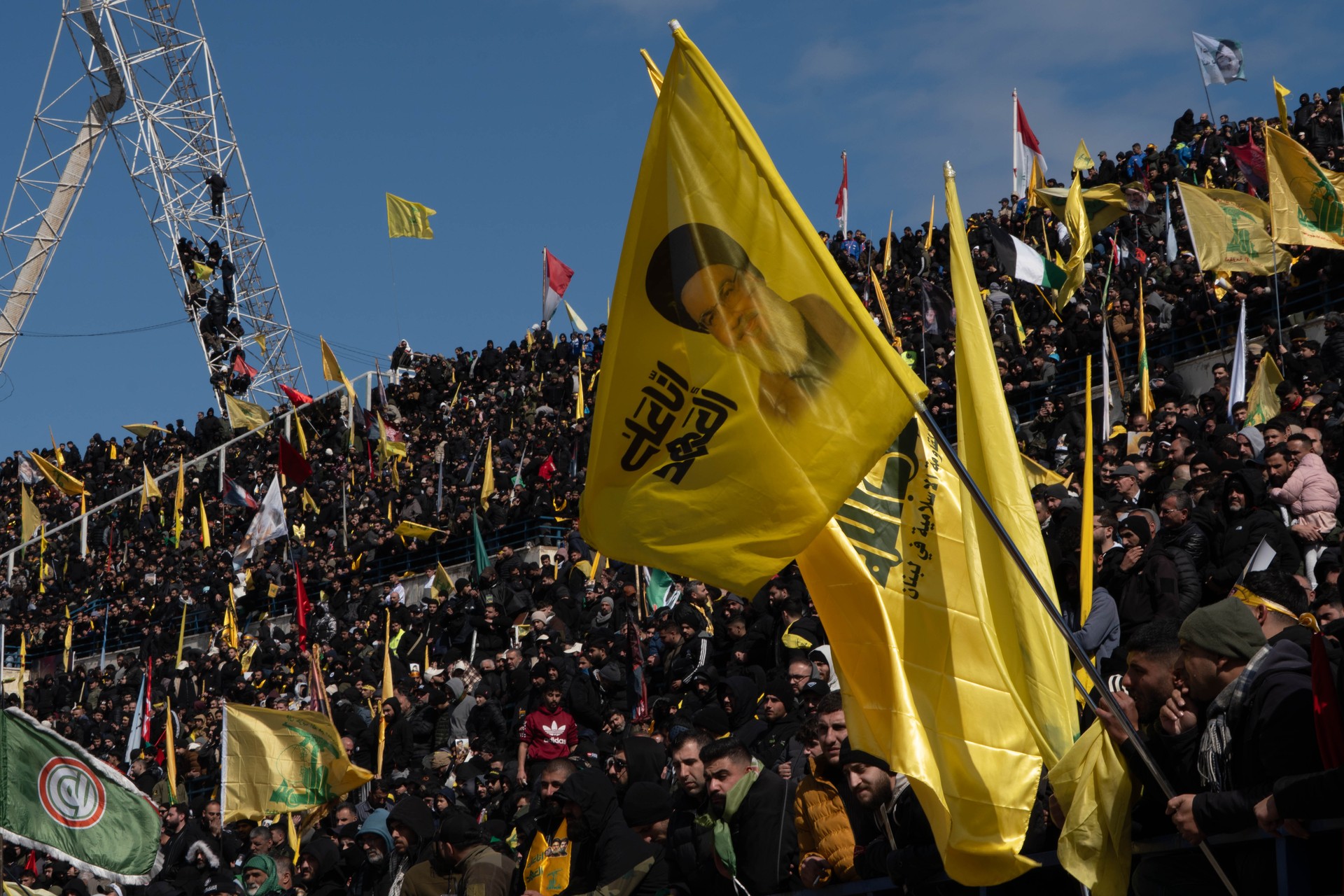
Hezbollah's leader declared Sunday that the militant group will not surrender its weapons despite mounting international pressure to disarm, as tensions escalate over Israel's continued military presence in southern Lebanon months after a cease-fire agreement.
Naim Qassem, speaking during the Shiite Muslim commemoration of Ashura before thousands of supporters in Beirut's southern suburbs, said his Iran-backed organization would not lay down arms while what he called Israeli "aggression" persists.
"This threat will not make us accept surrender," Qassem told the crowd in a televised address from the Hezbollah stronghold. "We cannot be asked to soften our stance or lay down arms while aggression continues."
The defiant speech comes as U.S. envoy Tom Barrack is expected to arrive in Beirut on Monday, with Lebanese authorities set to respond to American demands for Hezbollah's disarmament by year's end, according to a Lebanese official who requested anonymity.

Qassem, who assumed leadership after Israel killed longtime chief Hassan Nasrallah in September, insisted that Israel must first fulfill its obligations under the November cease-fire that ended months of cross-border warfare.
The agreement called for Hezbollah fighters to withdraw north of the Litani River, about 20 miles from the Israeli border, while the Israeli military was to leave all Lebanese territory.
However, Israel has maintained troops at five strategic border positions beyond the original January 26 withdrawal deadline, which was later extended to Feb. 18.
Lebanese authorities report nearly 3,000 Israeli ceasefire violations, including airstrikes that have killed at least 225 people and wounded over 500 since the truce took effect.
"Israel must abide by the ceasefire agreement, withdraw from the occupied territories, stop its aggression... release the prisoners," Qassem said, referring to those detained during last year's war. Only after Israeli compliance, he added, would Hezbollah be "ready for the second stage, which is to discuss national security and defense strategy."

The Lebanese government, which took office following the war, has repeatedly pledged to establish a state monopoly on weapons while demanding full Israeli compliance with the ceasefire. President Joseph Aoun said in April that disarming Hezbollah would require dialogue and appropriate political conditions.
Lebanese authorities say they have been dismantling Hezbollah's military infrastructure in the south, but Israeli officials claim insufficient progress, using this as justification for continued strikes against what they describe as Hezbollah targets.
International pressure for Hezbollah's disarmament has intensified, with British Foreign Secretary David Lammy visiting Beirut recently.
However, Lebanese President Aoun told Lammy on Saturday that Israeli occupation of Lebanese territory "complicates the state's ability to fully assert sovereignty and enforce exclusive control over weapons."

The standoff reflects the fragile nature of the ceasefire, which was designed to implement U.N. Security Council Resolution 1701 from 2006, calling for a permanent cease-fire and a demilitarized buffer zone along the border.
The conflict that preceded the ceasefire began with Israel's assault on Lebanon in October 2023, escalating into full-scale war by September 2024.
The fighting killed more than 4,000 people, wounded over 17,000, and displaced nearly 1.4 million, according to official Lebanese data.
During Sunday's Ashura commemoration, supporters dressed in black marched through Beirut's southern suburbs carrying Hezbollah banners alongside Lebanese, Palestinian, and Iranian flags. Some displayed posters of the slain leader, Nasrallah.
Qassem also rejected any future normalization with Israel, responding to recent comments by Israeli Foreign Minister Gideon Saar expressing interest in such a possibility.
Lebanon, technically still at war with Israel, has not commented on the normalization suggestion, while Syria called such discussions "premature."
The speech underscored the continuing tensions despite the cease-fire, with both sides accusing the other of violations while the international community seeks to prevent a return to full-scale conflict.